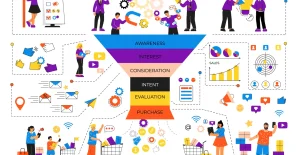Introduction
Choosing the right website platform is crucial for your business’s online success. With numerous options available, it can be overwhelming to decide which one best suits your needs. This comprehensive guide will help you understand the key features of popular platforms like WordPress, Shopify, and Wix, so you can make an informed decision.
1. Compare Features, Ease of Use, and Customization Options
WordPress:
- Features: WordPress is an open-source platform with a vast library of plugins and themes. It offers extensive customization capabilities and is suitable for a wide range of websites, from blogs to e-commerce stores.
- Ease of Use: While WordPress is highly flexible, it can have a steeper learning curve, especially for beginners.
- Customization Options: WordPress offers almost limitless customization through themes and plugins, allowing you to create a unique website tailored to your specific needs.
Shopify:
- Features: Shopify is a dedicated e-commerce platform with built-in tools for product management, payment processing, and shipping. It is designed specifically for online stores.
- Ease of Use: Shopify is user-friendly and easy to set up, even for those without technical knowledge. It provides a straightforward interface for managing your store.
- Customization Options: Shopify offers a range of themes and apps to enhance your store, but customization is more limited compared to WordPress.
Wix:
- Features: Wix is a website builder that offers drag-and-drop functionality, making it easy to create visually appealing websites without any coding knowledge. It includes various templates and apps.
- Ease of Use: Wix is one of the most user-friendly platforms, ideal for beginners who want to build a website quickly and easily.
- Customization Options: While Wix offers many templates and design options, it may not provide the same level of customization as WordPress.
2. Discuss the Pros and Cons of Each Platform
WordPress:
- Pros: Highly flexible and customizable, extensive plugin library, strong community support.
- Cons: Requires more technical knowledge, potential security vulnerabilities if not properly maintained.
Shopify:
- Pros: Easy to set up and use, excellent e-commerce features, reliable customer support.
- Cons: Monthly fees, limited customization compared to WordPress, additional costs for apps and themes.
Wix:
- Pros: User-friendly interface, affordable pricing, easy to create visually appealing websites.
- Cons: Limited customization, not as scalable for large businesses, can become expensive with premium features.
3. Provide Real-World Examples of Successful Businesses Using Each Platform
WordPress:
- Example: The Walt Disney Company uses WordPress for its blogs and content-heavy sites. The platform’s flexibility allows Disney to create a visually engaging and content-rich experience for its audience.
Shopify:
- Example: Gymshark, a popular fitness apparel brand, uses Shopify to power its e-commerce store. Shopify’s robust e-commerce tools have enabled Gymshark to scale its business and handle high traffic volumes during sales events.
Wix:
- Example: Karlie Kloss, a famous model, and entrepreneur, uses Wix for her personal website. The platform’s easy-to-use design tools help her maintain a professional and visually stunning online presence.
4. Offer Tips for Selecting the Best Platform Based on Your Business Needs
- Assess Your Needs: Determine what you need from your website. Are you creating a blog, an online store, or a portfolio? Your primary goal will influence your choice of platform.
- Consider Your Budget: Evaluate the costs associated with each platform, including hosting, themes, and plugins or apps. Make sure to factor in any ongoing fees.
- Evaluate Ease of Use: If you’re a beginner, you might prefer a platform like Wix for its simplicity. If you have some technical knowledge, WordPress offers greater flexibility.
- Think About Scalability: Choose a platform that can grow with your business. If you plan to expand your website’s functionality in the future, ensure the platform can accommodate your needs.
- Check for Support and Resources: Look for platforms with robust customer support and a wealth of online resources, such as tutorials and forums, to help you troubleshoot issues.
Conclusion
Choosing the right website platform is a critical decision that can impact your business’s success. By comparing features, ease of use, and customization options, and considering the pros and cons of each platform, you can make an informed choice that aligns with your business goals. Whether you opt for the flexibility of WordPress, the e-commerce power of Shopify, or the user-friendly design of Wix, selecting the right platform will set the foundation for your online success.




